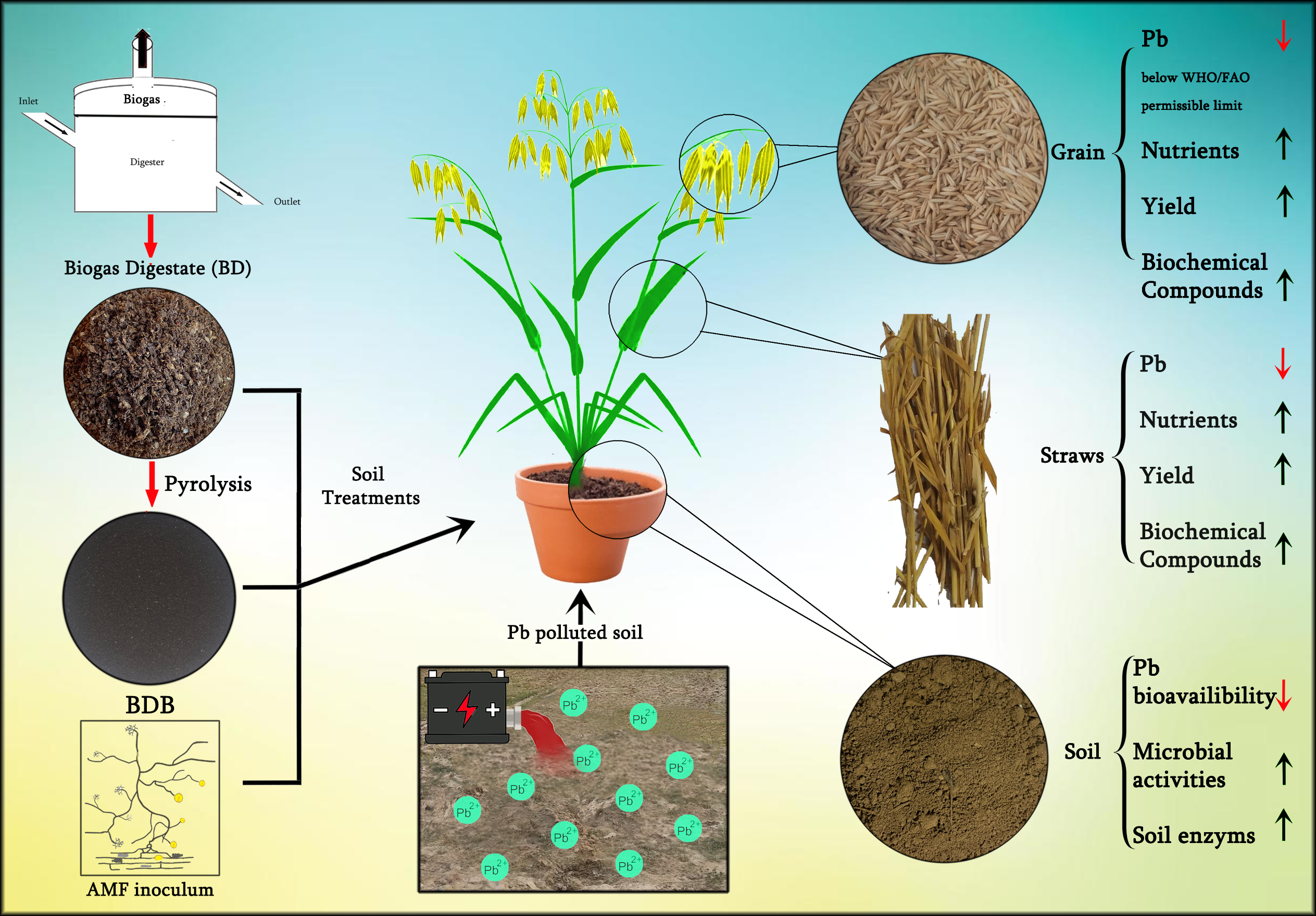
Biochar (BCR) coupled with suitable microorganisms can reduce lead (Pb) mobility in soil-plant system. Biogas plant digestate (BD), an abundant, inexpensive, and year-round available waste, can yield low-cost and nutrient-rich biochar (BDB). This pot experiment involves sole BD, BDB, and arbuscular mycorrhizal fungi (AMF) soil treatments and combining AMF with BD and BDB for Pb immobilization in Pb-polluted soil. Treatment effects on Pb uptake in oat plants, plant growth, and yield were assessed. Moreover, enzymatic activities, AMF root colonization, easily extractable glomalin (EEG), microbial biomass carbon (MBC), and microbial numbers in soil were also measured. BDB+AMF showed the highest soil Pb immobilization index (62.1%), leading to maximum Pb reductions in oats grain (80%), straw (66%), roots (45%), and its soil available fraction (62%), with grain Pb concentrations (3.27 mg kg−1 DW) below the WHO/FAO critical limit, than control. This treatment also maximally enriched grain and straw with nutrients (N, P, K, Ca, Mg, Fe, Zn, and Mn) than control. Moreover, topmost soil enzymatic activities (>68%), MBC (73%), EEG (165%), AMF root colonization (110%), and microbial numbers (>74%) were achieved with BDB+AMF treatment. Conclusively, BDB+AMF is a cost-effective soil amendment that can remediate Pb-polluted soil and produce safer and nutrient-rich food.
Total file downloads: 54